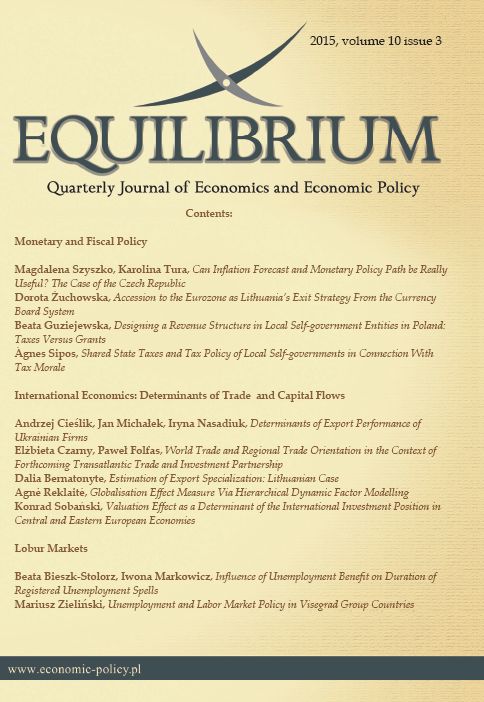World Trade and Regional Trade Orientation in the Context of Forthcoming Transatlantic Trade and Investment Partnership
World Trade and Regional Trade Orientation in the Context of Forthcoming Transatlantic Trade and Investment Partnership
Author(s): Elżbieta Czarny, Paweł FolfasSubject(s): Economy, Supranational / Global Economy
Published by: Instytut Badań Gospodarczych
Keywords: international trade; European Union; United States; TTIP
Summary/Abstract: We analyse potential consequences of the forthcoming Trade and Investment Partnership between the European Union and the United States (TTIP) for trade orientation of both partners. We do so along with the short analysis of the characteristics of the third wave of regionalism and the TTIP position in this process as well as the dominant role of the EU and the U.S. in the world economy – especially – in the world trade. Next, we study trade orientation of the hypothet-ical region created in result of TTIP. We use regional trade introversion index (RTII) to analyze trade between the EU and the U.S. that has taken place until now to get familiar with the potential changes caused by liberalization of trade between both partners. We analyze RTII for mutual trade of the EU and the U.S. Then, we apply disaggregated data to analyze and compare selected partial RTII (e.g. for trade in final and intermediate goods as well as goods produced in the main sectors of economy like agriculture or manufacturing). The analysis of the TTIP region’s orientation of trade based on the historical data from the period 1999-2012 revealed several conclusions. Nowadays, the trade between the EU and the U.S. is constrained by the protection applied by both partners. Trade liberalization constituting one necessary part of TTIP will surely help to intensify this trade. The factor of special concern is trade of agricultural products which is most constrained and will hardly be fully liberalized even within a framework of TTIP. Simultaneously, both parties are even now trading relatively intensively with intermediaries, which are often less protected than the average of the economy for the sake of development of final goods’ production. The manufactured goods are traded relatively often as well, mainly in consequence of their poor protection after many successful liberalization steps in the framework of GATT/WTO. Consequently, we point out that in many respects the TTIP will be important not only for its participants, but for the whole world economy as well. TTIP appears to be an economic and political project with serious consequences for the world economy and politics.
Journal: Equilibrium. Quarterly Journal of Economics and Economic Policy
- Issue Year: 10/2015
- Issue No: 3
- Page Range: 105-128
- Page Count: 23
- Language: English

